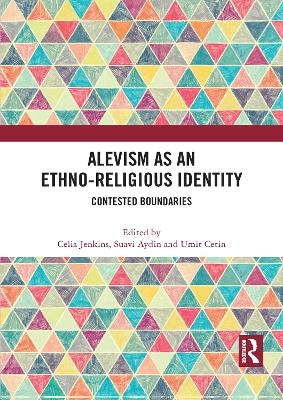
Alevism as an Ethno-Religious Identity
Routledge (Verlag)
978-1-138-09631-8 (ISBN)
The chapters in this book were originally published as a special issue of the National Identities journal.
Celia Jenkins is based in the Department of History, Sociology and Criminology at the University of Westminster, UK. She is a sociologist of education and gender, specialising in the relationship between the state, education, religion and identity. She has published on religious education and identity with reference to the transnational Alevi ethno-faith communities in London and Turkey. Suavi Aydin is based in the Faculty of Communication at Hacettepe University, Ankara, Turkey. He is a social anthropologist of religious communities, specialising in the Middle East, and has published on ethno-faith communities including the Alevis. His latest book addresses the contemporary history of Turkey through examination of the Kurdish question, political Islam, nationalism and militarism in Turkey. Umit Cetin is based in the Department of History, Sociology and Criminology at the University of Westminster, UK. He is a sociologist of religion, transnational migration, identity and suicide, and has published on suicide amongst second-generation Alevi migrants, ethnography, cosmopolitanism and religious education and identity.
Introduction 1. The emergence of Alevism as an ethno-religious identity 2. Constructing a social space for Alevi political identity: religion, antagonism and collective passion 3. The AKP, sectarianism, and the Alevis’ struggle for equal rights in Turkey 4. Thoughts on the rhetoric that women and men are equal in Alevi belief and practice (Alevilik) – to Songül 5. Television and the making of transnational Alevi identity 6. From ‘a sort of Muslim’ to ‘proud to be Alevi’: the Alevi religion and identity project combatting the negative identity among second-generation Alevis in the UK
| Erscheinungsdatum | 08.12.2017 |
|---|---|
| Verlagsort | London |
| Sprache | englisch |
| Maße | 174 x 246 mm |
| Gewicht | 453 g |
| Themenwelt | Geisteswissenschaften ► Religion / Theologie ► Islam |
| Sozialwissenschaften ► Ethnologie | |
| Sozialwissenschaften ► Soziologie | |
| ISBN-10 | 1-138-09631-8 / 1138096318 |
| ISBN-13 | 978-1-138-09631-8 / 9781138096318 |
| Zustand | Neuware |
| Informationen gemäß Produktsicherheitsverordnung (GPSR) | |
| Haben Sie eine Frage zum Produkt? |
aus dem Bereich


